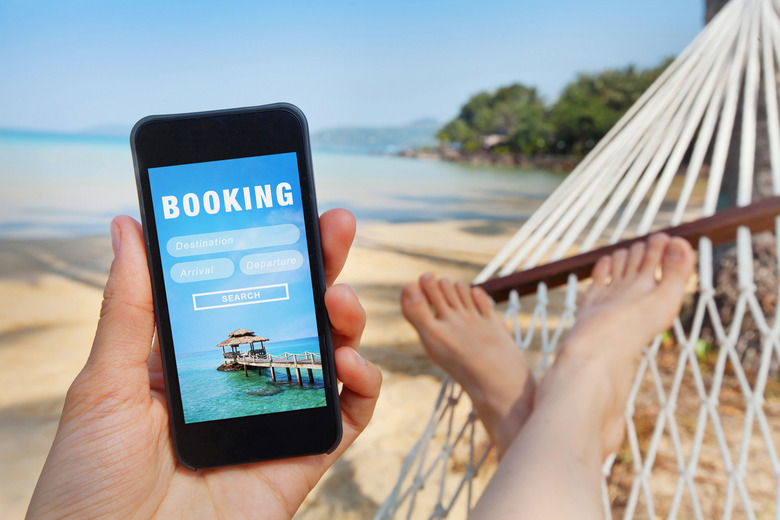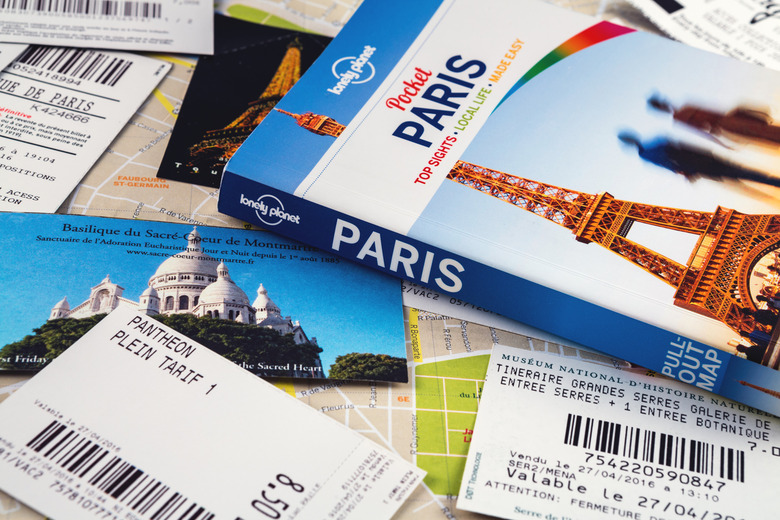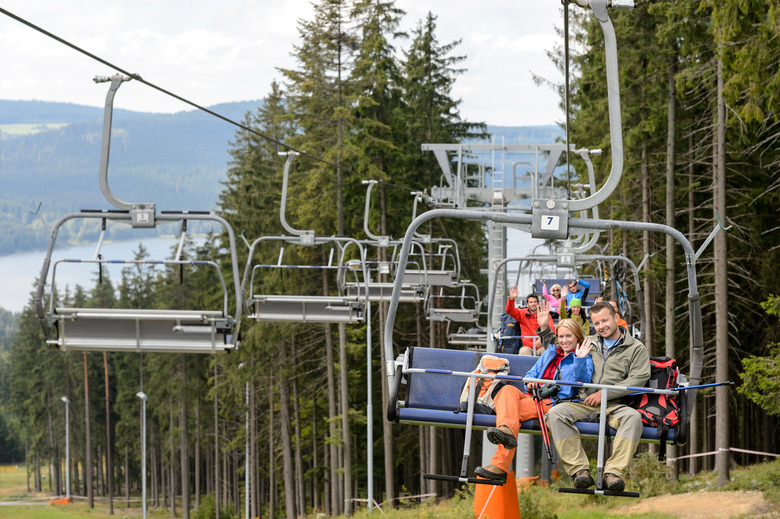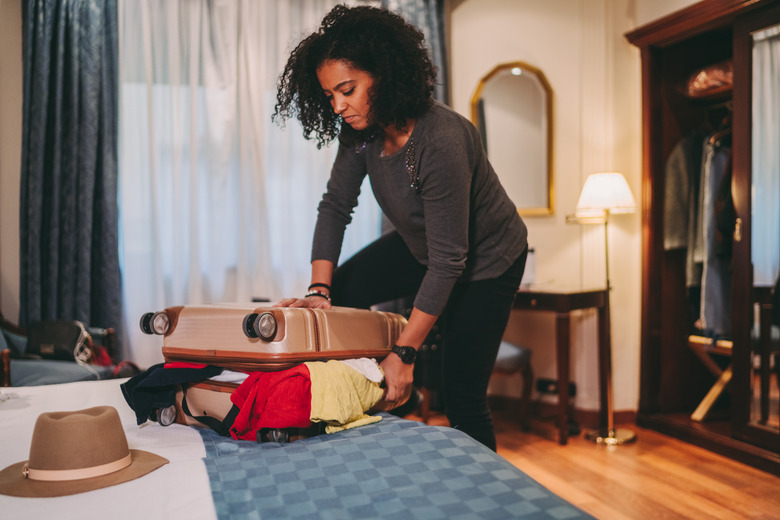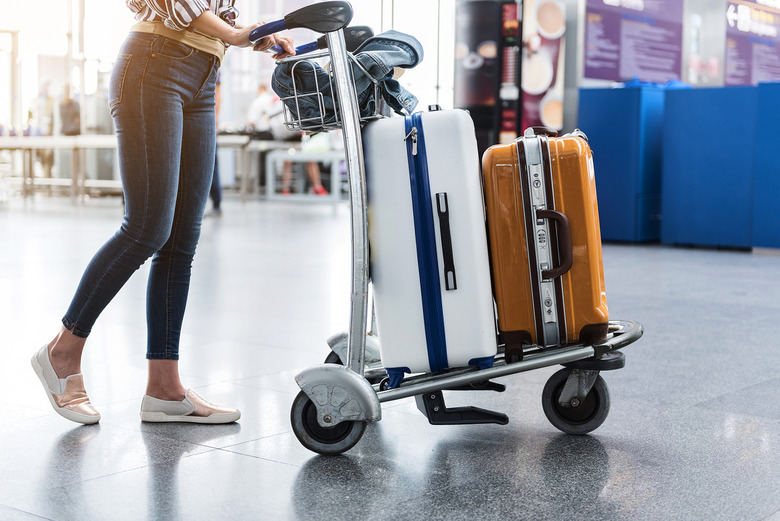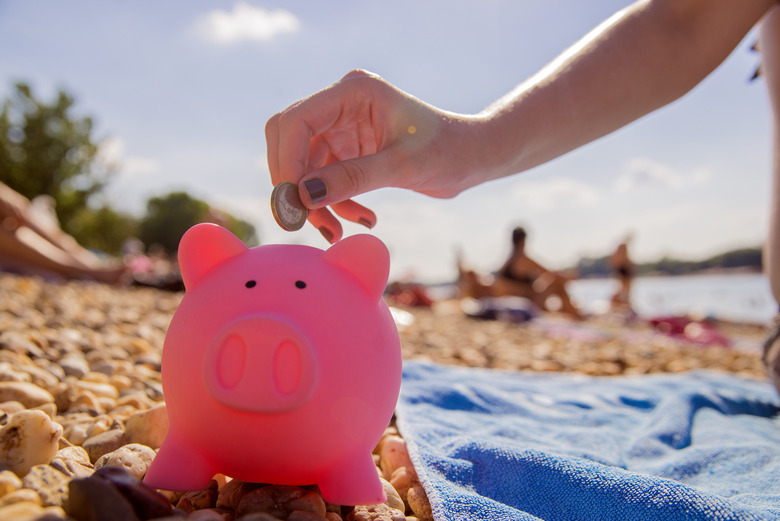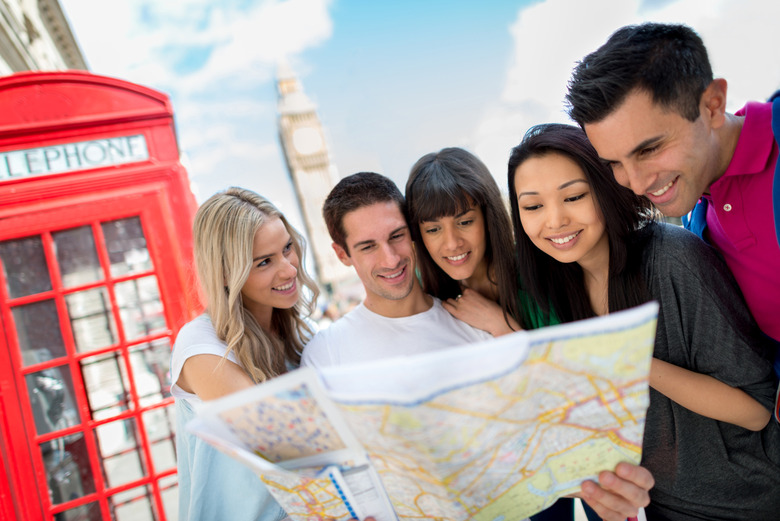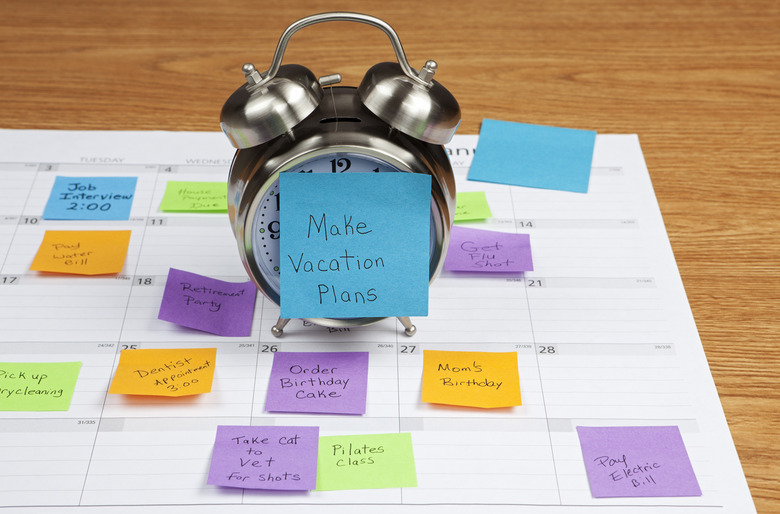What People Wish They Knew When Planning A Vacation
What People Wish They Knew When Planning a Vacation
Taking regular or occasional vacation time is a critical component to your mental and physical health and emotional well-being. Taking time to recharge is also vital to your career. It helps prevent burnout and gives you mental clarity, boosting your mood and performance upon your return.
On the flip side, not taking vacation can negatively impact your health. A nine-year study published in Psychosomatic Medicine suggests that your risk of mortality due to cardiovascular disease increases if you don't take a least one vacation day a year.
The U.S. is one of the few countries in the world that doesn't guarantee paid time off, so for the lucky 76 percent of private industry workers who get paid vacation days (according to the Bureau of Labor Statistics), it's important to make those days count. To plan the perfect vacation that will help you relax, recharge and be inspired, it's critical to avoid mistakes that could turn your retreat into a source of stress and anxiety.
Check out these tips that will make planning your vacation go smoothly and ensure that your time off is as beneficial to you as possible.
How Long of a Trip to Take
The average American worker is entitled to 16 days of paid leave but only plans trips that last four days in length, per CBS News. This unfortunately isn't enough time for you to properly relax and enjoy the health benefits of vacation. According to research published in the Journal of Happiness Studies, the perfect vacation length is eight days. This is because positive emotions and relaxation set in after the first few days of vacation before peaking on the eighth day.
How to Choose the Right Destination
Pick your travel destination based on your budget and your interests as well as those of your travel companions. Think critically about what you want to get out of your vacation. Is relaxation or adventure more important? Do you value bustling city culture or time alone in the countryside? Do you want to be active or lounge by the pool? These questions will affect where you go and where you stay.
Where to Find Deals
Once you've narrowed down your destination, it's time to shop around to find the best options for airfare, hotels, entertainment and more. But where to start? The internet is a great resource, but the number of review, price comparison and deal sites can honestly be overwhelming. Quality aggregators include Airfarewatchdog, Skyscanner, Booking.com, Hopper, Kayak, Expedia, Orbitz, Hotels.com, Travelzoo and Google Flights. For lodging, check Airbnb, VRBO and HomeAway on top of hotel rates as well as HostelWorld and Hostels.com if you're looking for something low-budget. If you're really on the hunt for bargains, subscribe to airline and hotel newsletters or those of travel-hack bloggers you trust for the inside scoop on deals.
How to Find Real Reviews
When you start researching lodging, activities and dining options in your desired destination, be wary of results that pop up first in search engines or web pages. Oftentimes these options are promoted highly because their position is paid for. Sponsor businesses or ad partners can pay to be featured on sites like Google, Yelp and TripAdvisor. Look for fine print or special boxes or badges that set these paid-for ads apart. Same goes for travel blogs or Instagram pages — dig around to see whether or not their review was influenced by the person being paid or given the trip for free. Some businesses have been caught paying for people to post fake reviews on review websites, so use your best judgment and be wary of glowing reviews with little detail from an account with few other reviews. While the internet is a bit like the Wild West, published travel guides such as Fodor's, Frommer's and Lonely Planet are great resources because they don't accept payment from businesses to be featured in their guides.
The Definition of Shoulder Season
When researching potential vacation destinations, one of the first things you should determine is what that place's peak, off-peak, and shoulder seasons are. Peak season might be the ideal time to visit a location, but prices will reflect that demand. Some places are still quite enjoyable in the off-season, but others are actually unbearable due to weather. That's when "shoulder season" can be your best friend. Shoulder season is the time between peak and off-peak seasons, so you can still enjoy all an area has to offer without paying top dollar. For example, Colorado is a popular destination in the summer and winter, but spring and fall still offer plenty of outdoor opportunities and beautiful sights.
When Destinations Will Be Overcrowded
If you're not looking to combat huge crowds, it makes sense to avoid certain locations like New York City on New Year's Eve or Park City, Utah, during the Sundance Film Festival. But make sure to check that your desired destination won't be overrun by an event or celebration you didn't know about. For instance, check if any music festivals or conventions are happening while you're in town, such as Jazz Fest in New Orleans, which brought more than 425,000 people to the city in 2017. Also make sure that your brilliant idea isn't one that 100,000 other people have thought of, such as visiting Disney World on Christmas Day. In 2017, the Magic Kingdom reached capacity that day, and some areas were so packed that people couldn't move.
How to Pack Smart
Simply folding clothes like you're putting them away in a dresser drawer isn't making the most of your potential packing space. Rolling, not folding, is the best way to fit the maximum amount of clothing in your bag, as it eliminates wasted space between layers. Another smart packing option to consider for traveling with bulky coats or sweaters is compression bags. Ultimately, having fewer bags or smaller ones makes things simpler and less stressful.
What to Bring With You
Packing smart also entails knowing what to bring with you and what to leave at home. Most every hotel has a hair dryer, so don't take up precious luggage space with appliances and other items you don't need. Check the amenities provided by your lodgings to avoid this. Pare down your makeup, medicine, and toiletries to the minimum amount of products you use every day. Don't bring more than two pairs of jeans, which are heavy and bulky, and don't pack a completely different outfit for each day of your trip.
When You Need Reservations
If you're traveling to a place for a particular attraction like a Broadway show, a Michelin-star meal, or a Tuscan wine tour, that should be the first thing you book. If certain meals, shows or attractions are must-sees, nab those reservations. If you absolutely must visit someplace that doesn't take reservations or sell tickets in advance, then leave flexibility in your schedule to wait it out. While buying in advance might incur online fees, it will give you the peace of mind to enjoy your vacation and set you up for success rather than disappointment.
How Not to Over-Schedule Yourself
Strict schedules can actually ruin your vacation. First of all, over-structuring your trip means that if one thing goes wrong, like missing a train or arriving five minutes late, then your plans start to collapse like a line of dominoes. Secondly, it's scientifically believed to suck the fun out of your vacation. According to research published in the Journal of Marketing Research, strict scheduling makes your leisure time feel like work, an obligation or a chore. It's still valid to allot certain time blocks to certain activities, but scheduling in some downtime and wiggle room will allow you more freedom to relax and enjoy.
How to Save Up
Paying for the trip of your dreams requires saving enough in advance that you can actually enjoy your vacation. Blogger Nomadic Matt recommends pinning down exactly how much you need to save before your trip arrives. For example, you'll need to save $8.33 a day if you have a $2,000 trip eight months from now. That less daunting number makes it easier to set aside that money or cut back on daily expenses like buying coffee or eating out. If you're wondering how much you can really afford to spend on vacation, Real Simple recommends using about 8 percent of your yearly earnings on fun, including travel.
How to Budget
Once you've checked into vacation mode, it's easy to lose sight of how much you're actually spending and overindulge in treating yourself. A 2017 LearnVest Money Habits and Confessions Survey found 74 percent of people have gone into debt to pay for a vacation, spending an average of $1,108 more than they can afford. You don't have to be in this majority, however. Avoid dropping dough on obviously overpriced things like cheap souvenirs or the hotel mini-bar. Take advantage of anything that's already included in your trip cost, such as eating your hotel's complimentary breakfast instead of spending 10 euros on a croissant and coffee. Take out cash and only spend what you allot for each day. Check on the exchange rate and calculate the cost in dollars before purchasing anything. Make sure you know if your bank charges any additional fees for foreign transactions.
How to Bundle
Travel sites and airlines offer a variety of package deals that bundle airfare, hotel, rental cars and more, but are they really worth it? These combined deals can actually save you hundreds, according to travel blog The Points Guy, who found European airfare and hotel packages that were cheaper than buying the flights by themselves. It's important to read the fine print, though — these deals can have different rules for cancellations, accumulating points or miles, and more.
How to Get Around
Before arriving at (or even choosing) a destination, research your transportation options. The cost and reach of public transit options, taxis, and ride share services or the cost and parking fees for a rental car will affect whether or not you can afford to get around or reach the attractions you want to visit.
When to Let Someone Else Plan Your Trip
Vacations can become more of a burden than a pleasure when you overwork yourself in the planning stages. With the internet, it's easy to get bogged down in contradictory information or lost amongst thousands of travel blogs to make a few simple decisions. For big excursions like African safaris or family trips to Walt Disney World, travel agents or tour operators can lend you their expertise and actually save you time and money with their insider connections and discounts. If you're going to an area where you're concerned about security or if you have special travel needs, an agent or tour company could be especially helpful. For more insider travel info, here are the places experienced travelers avoid during the holiday season.
More From The Active Times:
20 Hacks for Navigating the Busiest Airline Hubs This Holiday Season
50 Things Every Woman Should Do in Her Lifetime
15 Ways to Save Money When You Buy Plane Tickets




